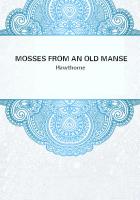I have had some opportunities of studying the conditions under which Nietzsche is read in Germany, France, and England, and I have found that, in each of these countries, students of his philosophy, as if actuated by precisely similar motives and desires, and misled by the same mistaken tactics on the part of most publishers, all proceed in the same happy-go-lucky style when "taking him up." They have had it said to them that he wrote without any system, and they very naturally conclude that it does not matter in the least whether they begin with his first, third, or last book, provided they can obtain a few vague ideas as to what his leading and most sensational principles were.
Now, it is clear that the book with the most mysterious, startling, or suggestive title, will always stand the best chance of being purchased by those who have no other criteria to guide them in their choice than the aspect of a title-page; and this explains why "Thus Spake Zarathustra" is almost always the first and often the only one of Nietzsche's books that falls into the hands of the uninitiated.
The title suggests all kinds of mysteries; a glance at the chapter-headings quickly confirms the suspicions already aroused, and the sub-title: "ABook for All and None", generally succeeds in dissipating the last doubts the prospective purchaser may entertain concerning his fitness for the book or its fitness for him. And what happens?
"Thus Spake Zarathustra" is taken home; the reader, who perchance may know no more concerning Nietzsche than a magazine article has told him, tries to read it and, understanding less than half he reads, probably never gets further than the second or third part,--and then only to feel convinced that Nietzsche himself was "rather hazy" as to what he was talking about.
Such chapters as "The Child with the Mirror", "In the Happy Isles", "The Grave-Song," "Immaculate Perception," "The Stillest Hour", "The Seven Seals", and many others, are almost utterly devoid of meaning to all those who do not know something of Nietzsche's life, his aims and his friendships.
As a matter of fact, "Thus Spake Zarathustra", though it is unquestionably Nietzsche's opus magnum, is by no means the first of Nietzsche's works that the beginner ought to undertake to read. The author himself refers to it as the deepest work ever offered to the German public, and elsewhere speaks of his other writings as being necessary for the understanding of it. But when it is remembered that in Zarathustra we not only have the history of his most intimate experiences, friendships, feuds, disappointments, triumphs and the like, but that the very form in which they are narrated is one which tends rather to obscure than to throw light upon them, the difficulties which meet the reader who starts quite unprepared will be seen to be really formidable.
Zarathustra, then,--this shadowy, allegorical personality, speaking in allegories and parables, and at times not even refraining from relating his own dreams--is a figure we can understand but very imperfectly if we have no knowledge of his creator and counterpart, Friedrich Nietzsche; and it were therefore well, previous to our study of the more abstruse parts of this book, if we were to turn to some authoritative book on Nietzsche's life and works and to read all that is there said on the subject. Those who can read German will find an excellent guide, in this respect, in Frau Foerster-Nietzsche's exhaustive and highly interesting biography of her brother: "Das Leben Friedrich Nietzsche's" (published by Naumann); while the works of Deussen, Raoul Richter, and Baroness Isabelle von Unger-Sternberg, will be found to throw useful and necessary light upon many questions which it would be difficult for a sister to touch upon.
In regard to the actual philosophical views expounded in this work, there is an excellent way of clearing up any difficulties they may present, and that is by an appeal to Nietzsche's other works. Again and again, of course, he will be found to express himself so clearly that all reference to his other writings may be dispensed with; but where this is not the case, the advice he himself gives is after all the best to be followed here, viz.:--to regard such works as: "Joyful Science", "Beyond Good and Evil", "The Genealogy of Morals", "The Twilight of the Idols", "The Antichrist", "The Will to Power", etc., etc., as the necessary preparation for "Thus Spake Zarathustra".
These directions, though they are by no means ****** to carry out, seem at least to possess the quality of definiteness and straightforwardness.
"Follow them and all will be clear," I seem to imply. But I regret to say that this is not really the case. For my experience tells me that even after the above directions have been followed with the greatest possible zeal, the student will still halt in perplexity before certain passages in the book before us, and wonder what they mean. Now, it is with the view of giving a little additional help to all those who find themselves in this position that I proceed to put forth my own personal interpretation of the more abstruse passages in this work.
In offering this little commentary to the Nietzsche student, I should like it to be understood that I make no claim as to its infallibility or indispensability. It represents but an attempt on my part--a very feeble one perhaps--to give the reader what little help I can in surmounting difficulties which a long study of Nietzsche's life and works has enabled me, partially I hope, to overcome.
...
Perhaps it would be as well to start out with a broad and rapid sketch of Nietzsche as a writer on Morals, Evolution, and Sociology, so that the reader may be prepared to pick out for himself, so to speak, all passages in this work bearing in any way upon Nietzsche's views in those three important branches of knowledge.
(A.) Nietzsche and Morality.















